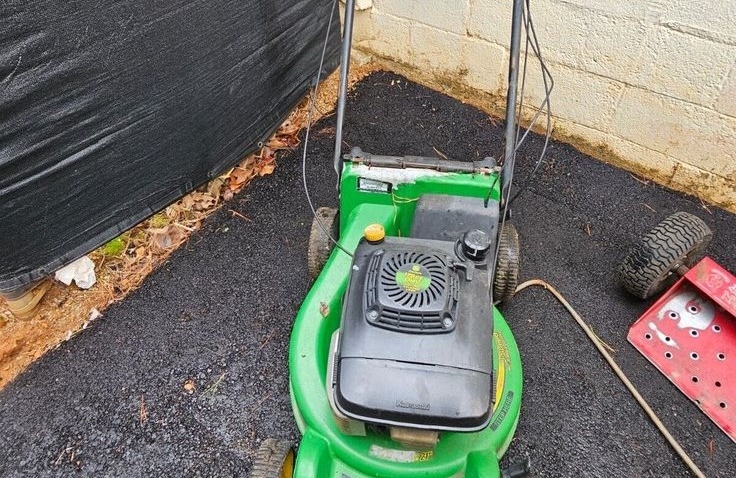
Why Does My Lawnmower Keep Stopping: Troubleshoot & Repair
Essential Preliminary Checks
Why does my lawnmower keep stopping? Before diving into more complex troubleshooting, start with the basics. Two critical elements that can’t be overlooked when addressing why your lawnmower keeps stopping are the gas and oil levels.

Confirm Gas and Oil Levels
Ensure your lawnmower has enough gas and oil. These are the lifeblood of your engine. For gas, look inside the tank. There should be sufficient fuel for operation. For oil, remove the dipstick, wipe it clean, insert it again, and pull it out once more to check the oil level. If low, top it up with the correct grade of oil, as specified by the manufacturer.
Inspect the Quality of Fuel
Beyond quantity, the quality of your fuel is imperative. Old or contaminated gas can hinder performance. If the fuel has been sitting in your mower for an extended period, it might have gone bad. Bad fuel can leave sticky residue or cause water to mix with the fuel, leading to engine issues. Drain old fuel safely, dispose of it properly, and then refill with fresh gasoline.
Common Causes of Lawn Mower Stops
Why does my lawnmower keep stopping? Understanding why your lawnmower frequently stops mid-operation can save a lot of hassle. Let’s explore the common culprits behind these disruptions.
Dirty or Clogged Air Filters
Air filters play a crucial role in maintaining the engine’s health of your mower. They protect the engine by trapping dirt and debris. However, over time, these filters can get clogged. This obstruction restrains the flow of air essential for combustion, causing the engine to stutter or stop. It’s important to inspect and clean the air filter regularly or replace it if it’s beyond cleaning.
Issues with the Carburetor
The carburetor is critical for mixing air and fuel to create the precise mixture that powers the engine. If it becomes clogged with residue or its settings are out of adjustment, this can cause the mower to stop running. Usual signs of trouble include difficulties in starting, a sputtering engine, or a mower that stops shortly after starting. A thorough cleaning or, if necessary, replacement of the carburetor might be required to resolve these issues.
Problems with the Fuel Mixture
Improper fuel mixture can also lead to mower stops. This might be due to several causes like a malfunctioning choke, using old or contaminated fuel, or incorrect settings on the carburetor affecting fuel ratio. Ensure you’re using fresh fuel and the choke is adjusted appropriately for the weather conditions. If you’re unsure about the carburetor settings, consulting the manual or a professional might be your best bet.
Specific Component Troubles
In your quest to stop your lawnmower from continuously stopping, giving special attention to key components may be the key. Let’s delve into several specific issues and their fixes.
Cleaning or Replacing the Spark Plug
A common reason for lawnmower struggles is a dirty spark plug. The plug may kick-start the engine, but won’t keep it running if clogged with grime. To tackle this, remove the spark plug with a wrench. Clean it with a wire brush and spray cleaner. Look for sticky carbon deposits. If you spot them, it’s best to replace the plug entirely. This is a simple but effective step in lawnmower maintenance.

Addressing Carburetor Clogs
A clogged carburetor is another big issue. It mixes air and fuel, important for the engine’s power. When clogged, your mower may start then stop abruptly. Try removing and cleaning the carburetor with a specialized cleaner. Replace the fuel filter if needed. If troubles persist after cleaning, professional help might be necessary for a replacement.
Checking and Adjusting the Choke
The choke adjusts the fuel-air mix. It’s crucial during a cold start. If the engine stops after start-up, the choke setting may be off. Make sure the choke is not too rich or too lean for the current temperature. If the choke has issues, it may need a clean. If that fails, replacing the choke switch is the next step.
By focusing on these specific parts, you can often resolve recurring stops. Regular check-ups of these components can keep your mower running smoothly.
Maintenance Tips to Prevent Future Issues
Keeping your lawnmower in top condition will save you from frequent stops and repairs.
Regular Cleaning and Replacement of Air Filters
Air filters need regular checks to avoid clogs. Clean them often and replace when needed. This simple step can prevent engine strain and extend your mower’s life. Consider changing air filters every 25 usage hours for best performance.
Periodic Checking of Spark Plugs
Inspect spark plugs at regular intervals. Clean with a brush and spray cleaner if dirty. Replace them immediately if you find carbon buildup. This can keep the ignition system reliable and reduce unexpected stops.
Proper Storage and Fuel Management
Store your mower in a clean, dry place to prevent rust and damage. Always use fresh fuel and never mix different types. Drain old fuel before storage to prevent buildup of residue.
By following these maintenance tips, you can help ensure that your lawnmower remains functional and efficient, resulting in a beautiful, well-kept lawn.
Professional Help and When to Seek It
Sometimes, despite your best efforts, your lawnmower issues persist. Knowing when to call a professional is important.
Signs That You Need a Specialist
When repeated attempts at self-fixing don’t work, it’s time for expert help. Look for these signs:
- If the mower starts then dies repeatedly, despite trying all the DIY methods.
- When you see oil leaking or spot unusual amounts of smoke.
- A mower that makes strange noises shows a deeper problem.
- If you feel unsure or unskilled for complex repairs.
- When fixes become temporary, and stops are too frequent.
When these signs show up, it’s wise to search for a specialist. They have the skills and tools to diagnose problems quickly and safely.
Benefits of Professional Lawn Mower Repair
Choosing a pro for your lawn mower repair has several benefits:
- Avoid ongoing frustrations with a mower that keeps stopping.
- Save money long-term by getting the problem fixed right the first time.
- Pros often guarantee their work, giving you peace of mind.
- Expertise allows for a more thorough and safe repair.
- They can offer advice for proper maintenance to prevent future issues.
When you know why your lawnmower keeps stopping and seek expert help, you extend its life. Professional repairs make sure you’re ready for the mowing season without hassles.

DIY Fixes for Immediate Relief
When your lawnmower stops abruptly, temporary solutions can sometimes be effective. These DIY tips can provide immediate help and potentially save you a day of gardening.
Temporary Solutions for Quick Fixes
- Check the Gas Cap Vent: Sometimes, a vacuum forms in the tank if the gas cap vent is blocked. Try loosening the gas cap slightly and see if the lawnmower stays running.
- Inspect the Pull Cord: A frayed or stuck pull cord can hinder starting. If it looks worn, try to untangle or replace it.
- Clean Visible Debris: Quick checks around the blades and air intakes can reveal obstructions. Remove any grass clippings or debris that may stop the mower.
- Quick Carburetor Spray: If the mower starts then dies, give the carburetor a quick spray with carburetor cleaner to remove superficial clogs.
These solutions are not permanent but may allow you to finish your task before a complete repair.
Safety Precautions During Self-Repair
Safety is crucial when attempting any mower fixes:
- Power Off: Always ensure the mower is off and cool before touching any parts.
- Wear Gloves: Sharp edges inside the mower can cause injuries. Wear thick gloves for protection.
- Avoid Running Tests Inside: Never run the mower in an enclosed space. Ensure adequate ventilation to avoid carbon monoxide buildup.
- Secure Moving Parts: Check that blades and other moving parts are secure to prevent accidents during testing.
Following these precautions helps prevent injuries and further damage to the mower.




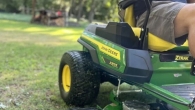



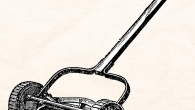
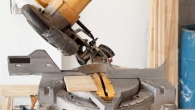
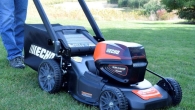

Leave a Reply